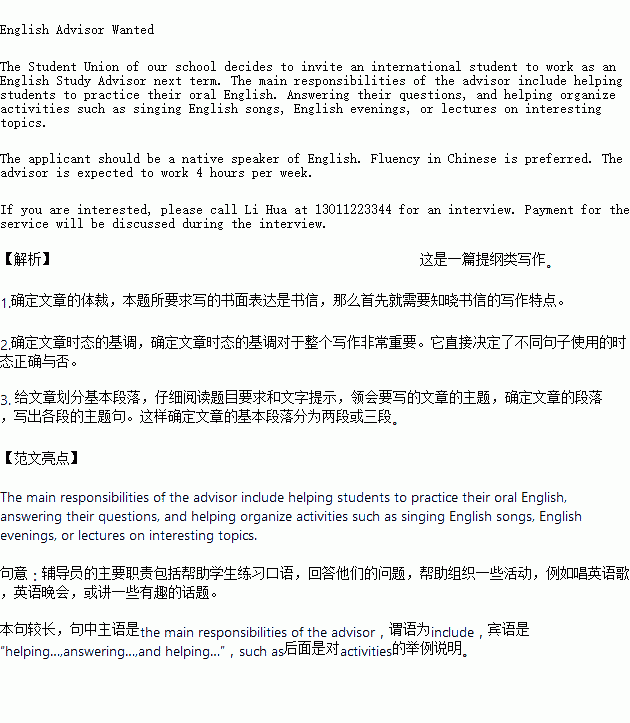题目内容
你校学生会需招聘一名留学生做英语学习顾问,请你以短文形式写一则招聘启事。内容主要包括:
——母语是英语,汉语流利者优先
——解答英语学习问题,协助组织英语活动
——每周4小时,报酬面议
——联系人:李华(Tel.13011223344)
注意:1.词数100左右;
2.可以适当增加细节,以使行文连贯;
3.启事标题和结尾已为你写好。
English Study Advisor Wanted
____________________________________________________________________________________________
____________________________________________________________________________________________
____________________________________________________________________________________________
____________________________________________________________________________________________
____________________________________________________________________________________________
____________________________________________________________________________________________
__________________________________________________________________
Students' Union
Yucai High School
 阅读快车系列答案
阅读快车系列答案
